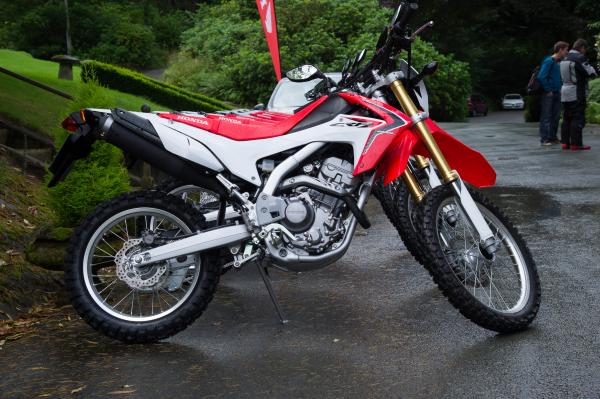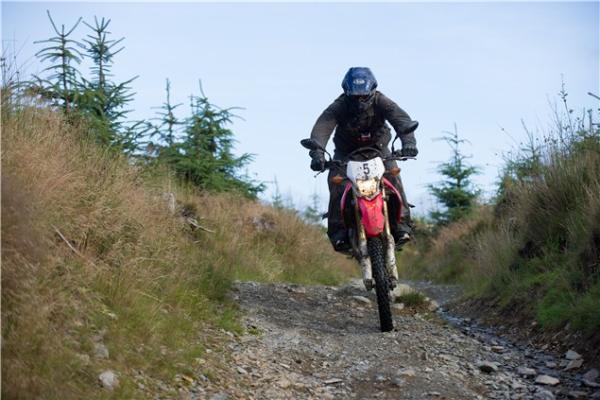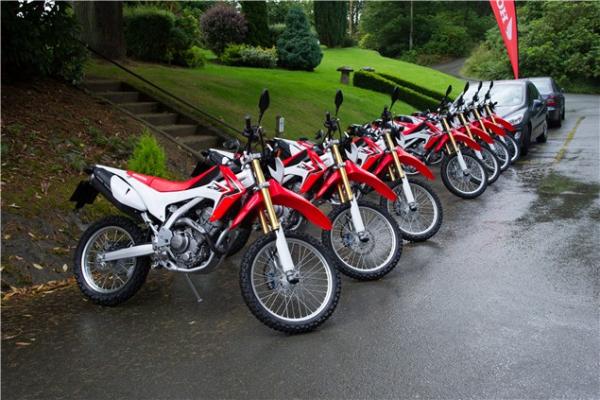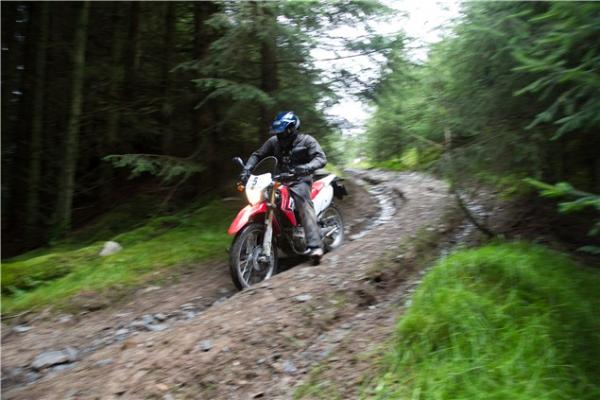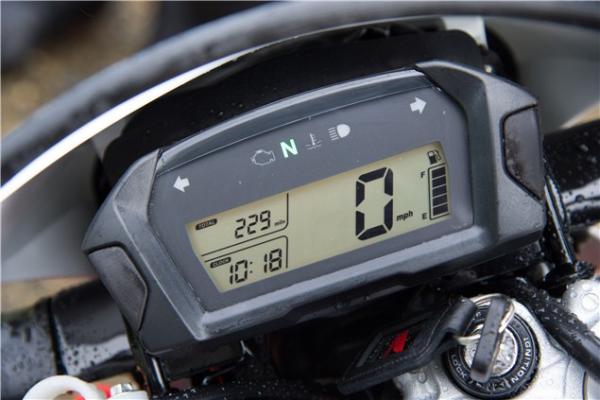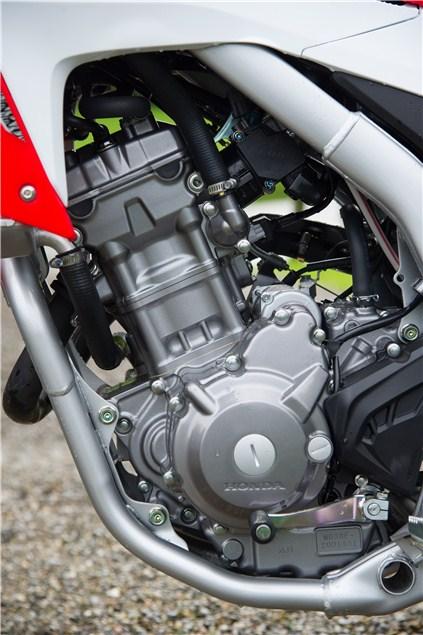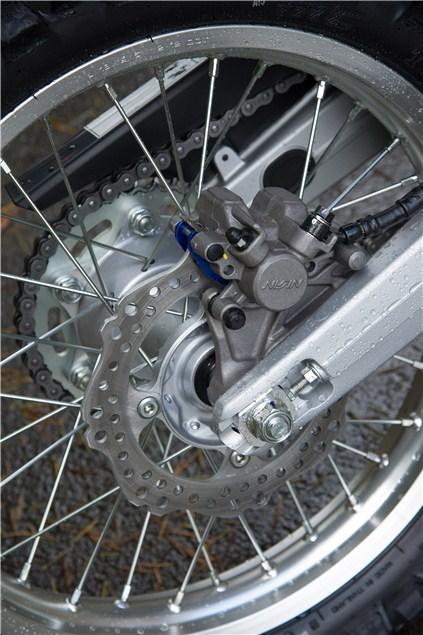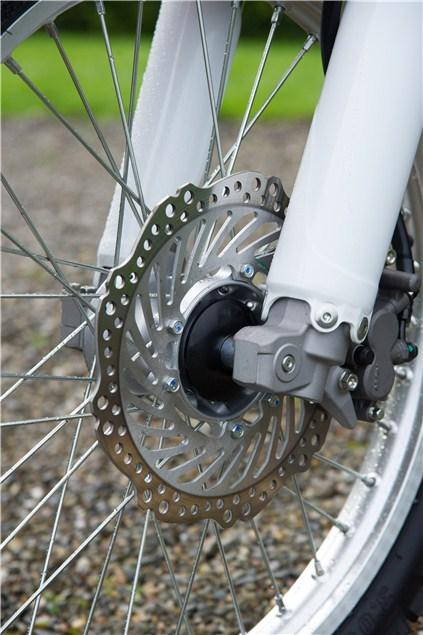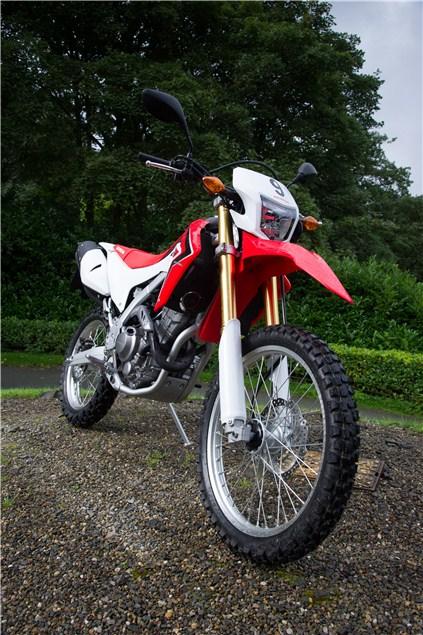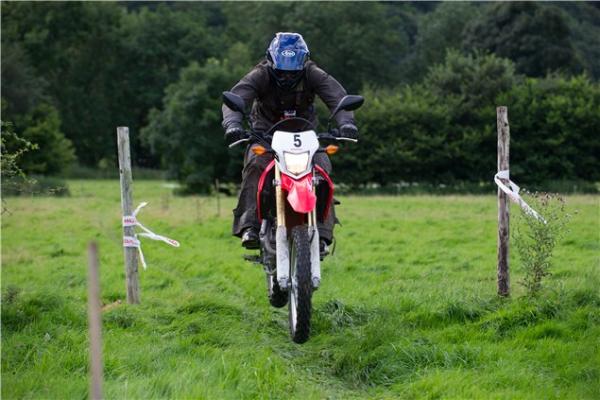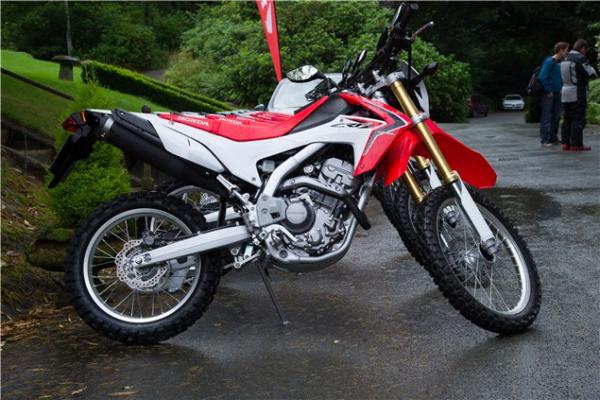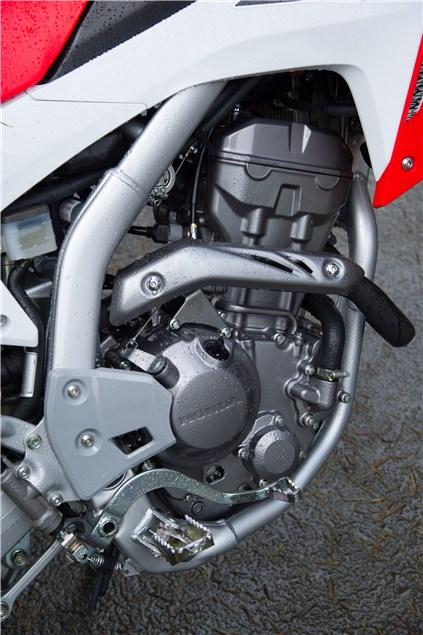First Ride: Honda CRF250L review
Trail Blazer

Member for
54 years 8 monthsRemember Honda’s once ubiquitous XL185?
It was a solid and dependable, if unexciting performer and became the chosen steed of the die-hard green laner. The little XL curried such favour because you could literally throw one upside down into a stinking bog and it’d still tick over like a sewing machine until you righted it and rode on your way.
Doff, doff, doff, doff.
But the best thing about trail riding on an XL185 was not its cast iron reliability but rather its un-intimidating size, budgie lipped economy and its comparative silence.
For glaringly obvious rambler-related reasons, noise, sorry, NOISE! is a massive issue for trail riders. Db closes green lanes faster than TB closes farmland.
Unless you’re built like a cross between he-man and a fattened bullock, so too is size. Yes you can go gentle green laning on a Crosstourer or GS 1200 BMW but anything more serious particularly on your own (sans helpers), and you’d be mad to try anything more adventurous than a muddy gravel drive on twelve grand’s worth of finest behemoth.
Full-on enduro bikes aren’t for everyone an’ all.
Frankly, speaking as an inept off-roader, a CRF450 or any big-bore KTM or Husky frightens me just by being in the same field as me.
So for a massive amount of people out there, there’s probably still a dual-purpose gap in the market for a replacement, unintimidating, undaunting, risk averse XL185 and the new CRF250L, I think, plugs it in a 21stcentury stylee.
This new trailie is not rip-your-arms-out fast. There’s no scope for popping second gear off-the-throttle wheelies on command. It’s not going to flip you over backwards (shifting cack-handedly from fourth to fifth). The 250L isn’t a high compression beast to start from hot or cold, either. It may look every inch the ferocious MX bike with lights but in all, it’s very, very unthreatening, very user friendly. Not cuddly, but close.
Initially, I was bitterly disappointed with its performance on the road. The MX looks really do deceive. Steep gradients require one if not two backshifts and top gear roll on acceleration seemed to be on a par with a CBR125. On tarmac, amongst traffic, it didn’t perform how it looked. Instead of bark and bite you get more of a yap and nibble.
But it takes a bit more effort to squeeze the last drops of performance out of this CBR250-based engine, though. A technique you quickly forget if you’ve spent the last couple of decades being spoiled by multi-cylindered litre sports bikes. And your memories as bad as mine.
Thirty miles into our road ride, it clicked. Positively came flooding back, it did.
The CRF250L must be mercilessly and utterly thrashed at all times – it’s the only way. And it’s fun.
Fast clutchless upshifts, pin-point accuracy in cornering techniques and the relentless pursuance of momentum (at all costs) is what it takes to better the average speed of most other road traffic. Work hard at it and this little CRF look-a-likey will crack an indicated 86mph and offer enough performance to make you remember what if felt like to be 17. Without the incessant self abuse, obviously.
But on its fairly radical Dunlop dirt-focussed knobblies it does feel a little ill-at ease on tarmac. The way it rolls from upright into a corner feels fidgety and vague and on damp Welsh roads grip levels are sacrificed by the lack of rubber actually making contact with the ground. Proper gritted buttocks and clenched teeth stuff. But that’s just the tyres – not the bike.
The suspension, chassis geometry and brakes all work well on the road and the trial-bike-like steering lock makes u-turns the stuff of dreams – even for black cab drivers. High speed stability – and by ‘high’ I mean over 60mph – isn’t exactly the 250L’s strong point but, again, I think this is probably more to do with the tyres wobbly tread blocks than rake and trail figures.
Because it’s so light, so manageable and so slim, it’d be the business for hacking about through town as a daily commuter. That thin saddle makes itself felt after an hour in the sitting position, though. An added bonus (much more dramatic than a 12v horn) is that by deliberately locking the rear wheel it invokes suck a howl of protest from the rear Dunlop that it makes a pavement full of people – 250 yards away – run for cover.
The moment we went off road, all of a sudden, it felt quite fast enough. It’s not until you’re slipping and sliding around, sniffing out grip that you come to truly appreciate the CRF250L’s narrowness, light weight and general manageability. Crashes well, too – although the less said about that the better.
Whether it’s jumping off rocks, paddling your way through cylinder head-high ruts, powersliding on loose shale or bobbing and weaving your way through dense conifer forests, the CRF250L laps it up. It’s hard to stall, too. The short-stroke engine is brilliant at finding grip in a way that a two-stroke would never manage. Rear wheel spinning? Just back off the gas a fraction and the rear tyre finds purchase almost instantly. Just like an XL185.
Unlike the air-cooled XL185, the engine is as quiet as a watch.
In fact, the biggest noise it makes is on the over-run, EFI butterfly shut, where the whine of camchain and the meshing of primary gears actually out-competes the noise from the big muffler. Like I said earlier, perfect for stealthy, sleuthy trail riding.
Ramblers and Janet Street-Porter-types will see you before they hear you, giving them little time to prepare their heady barrage of withering looks and toothy, scowling expressions.
It may be a one-lunger but it’s a smooth, vibe-free motor. There’s a contra-rotating balance shaft in there but Honda also claim that the specially surface-coated piston and plain metal crank bearings reduce not only friction but vibration, as well. As you spend so much of your time at the giddy end of this little engine’s rev range you’d really notice vibes – if there were any. As conclusive proof that Honda mean what they say, the mirrors remain blur-free, even at ten zillion rpm. Pinned in sixth.
Speaking of sixth, the clutch and ‘box are superb to use. Light in action, precise and predictable. Even wearing clunky MX boots I didn’t miss a shift all day. Off road I barely touched the clutch lever and still every ratio swap snicked home with total precision. That’s up and down shift. The clutch bite point offers as much feels and sensitivity as the brakes. Perfect.
The Showa suspension is long travel (250mm front, 240mm rear) with (oddly) a softly sprung rear and a firmly sprung front. This spring ratio is most noticeable when a larger boned gentleman sits on the bike. The rear almost collapses to the Pro-link’s bump stops, whilst the front hardly compresses at all. This situation is rectified when said gentleman stands on the heavily serrated foot pegs – as you would when you’re bashing across uneven terrain. Seems odd that there’s such an apparent miss-match, though. Carrying a rotund passenger – something I didn’t attempt – must be a great insight into learning to wheelie.
The rest of the chassis is pretty unremarkable – an alloy-coloured steel tube frame (nice welds, actually) in a cradle format with a tapered alloy swingarm and alloy chain adjuster bocks. There are top-quality alloy rims for the spoked wheels which all add to the overall high quality competition-look and feel of the 250L. The front brake hose is horrible, though and appears to be purloined from another motorbike altogether (with 500mm of front suspension travel) such is its vast, looping length of surplus rubber. The chrome plated locking fuel cap also seems as if it’s from another bike. Chrome and MX styling are uncomfortable style bedfellows.
But where in the market does this new bike fit?
Well, whilst extreme enduro is for a select (very fit) few – usually people with a completely different DNA to normal human beings – trail riding is a pastime many unhealthier or less adept people could (and should) take up if the right bike existed. Let’s face it, it’s a fantastic way to see scenery that’s well off the normal beaten track – kind of like rambling for people with less time and more of a sense of adventure. And humour.
That bike does exist and it’s the new, 21st century XL185. It is of no coincidence that it’s also made by Honda.
The Thai-built CRF250L Honda is available to purchase in August at a price of £3,950. I reckon it may just be the ideal economical commuter/weekend recreational tool that Honda claim.
A little bit more horsepower wouldn’t go amiss, though…
